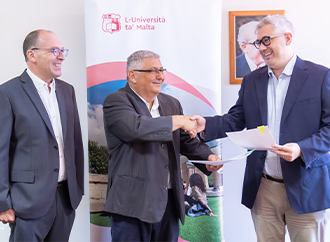
Enhance Educational Practices with a New Postgraduate Course in Coding and Computational Thinking at the University of Malta
The increasing integration of digital technologies into everyday life underscores the necessity for educators to equip students with foundational skills in coding and computational thinking. Recognizing this emerging educational priority, the University of Malta, in collaboration with the Ministry for Education, Youth, Sport, Research and Innovation, has introduced a specialized postgraduate course designed to prepare teachers for this digital shift. This initiative aims to develop a new generation of educators capable of fostering digital literacy and computational skills from the primary level onward.
Why Focus on Coding Education and Computational Thinking
Coding and computational thinking are now considered essential skills, comparable to literacy and numeracy. These skills enable learners to understand how digital systems work, think algorithmically, and approach problems systematically. As Malta advances its Digital Education Strategy 2025–2030, integrating these competencies into school curricula becomes vital for future-proofing education and ensuring students are prepared for the digital economy.
Teaching these skills early is crucial. When young learners grasp the basics of coding, they develop problem-solving abilities, creativity, and critical thinking. Moreover, fostering an understanding of AI and digital systems helps students recognize the human contribution behind technology, its possibilities, and its limitations. Ensuring educators are well-trained in these areas is foundational to successful implementation of digital literacy programs.
Details of the University of Malta’s Postgraduate Course in Coding and Computational Thinking
The postgraduate program, a part-time certificate, is aiming to equip primary school teachers with practical and theoretical knowledge in coding and computational thinking. Funded by €21,500 from the Ministry, the course will run from the upcoming academic year and is designed to be accessible and relevant.
The university’s Faculty of Education will oversee the course’s development, ensuring those enrolled gain hands-on experience along with pedagogically informed instruction. The curriculum will encompass foundational AI concepts, coding exercises, and methods to seamlessly incorporate these topics into primary school lessons in an age-appropriate manner. This approach ensures that teachers are not only knowledgeable but also confident in delivering engaging digital literacy lessons.
Course Objectives and Pedagogical Approach
- Develop teachers’ understanding of core digital and computational concepts.
- Enable the integration of coding activities into primary education.
- Introduce foundational AI principles suitable for young students.
- Foster a problem-solving mindset among teachers and students alike.
- Promote practical skills through hands-on learning and peer sharing.
The course is designed for up to 15 participants initially, with plans for further deployment across local schools once successful. The program emphasizes not only skill acquisition but also pedagogical strategies to inspire student engagement and foster creativity in the classroom.
Implications for Teachers and the Future of Education in Malta
This initiative signifies a vital step forward for the Maltese education system. By empowering teachers with modern competencies, the University of Malta aims to elevate the quality of digital education in primary schools. Teachers will be equipped to introduce digital concepts confidently, laying the groundwork for students to become innovative problem-solvers and creators in the digital age.
Furthermore, embedding computational skills early supports equitable access to technology and reduces disparities in digital literacy. As teachers become proficient in these areas, their influence extends beyond individual classrooms, fostering a culture of continuous technological engagement and innovation within the educational community.
How to Get Involved and Next Steps
If you are an educator interested in participating in this pioneering program, the postgraduate certificate offers an excellent opportunity to develop critical skills aligned with Malta’s digital strategy. Prospective participants can submit their applications as soon as registration opens for the upcoming academic year.
For schools and educational institutions, fostering an environment that encourages teacher development in coding and digital literacy is essential. Engaging in such programs supports professional growth and ensures that curriculum delivery remains aligned with global technological trends.
Explore Related Opportunities
Interested in further advancing your digital literacy or discovering other courses at the University of Malta? Learn more about the postgraduate course in Computational Thinking and Coding and related programs that can enhance your teaching career.
Conclusion
The University of Malta’s new postgraduate course in coding and computational thinking underscores a strategic commitment to modernizing education. By preparing teachers to effectively deliver digital skills, Malta is positioning itself to lead in digital literacy within the region. Educators are encouraged to seize this opportunity to stay ahead of educational trends and contribute to shaping the next generation of digital creators and innovators.
Taking the next step in professional development ensures that teachers remain at the forefront of educational excellence. To learn more about registration details or related programs, visit the university’s official course page today.

